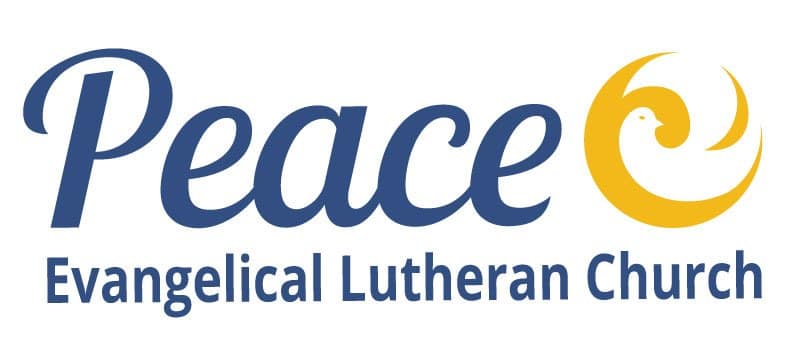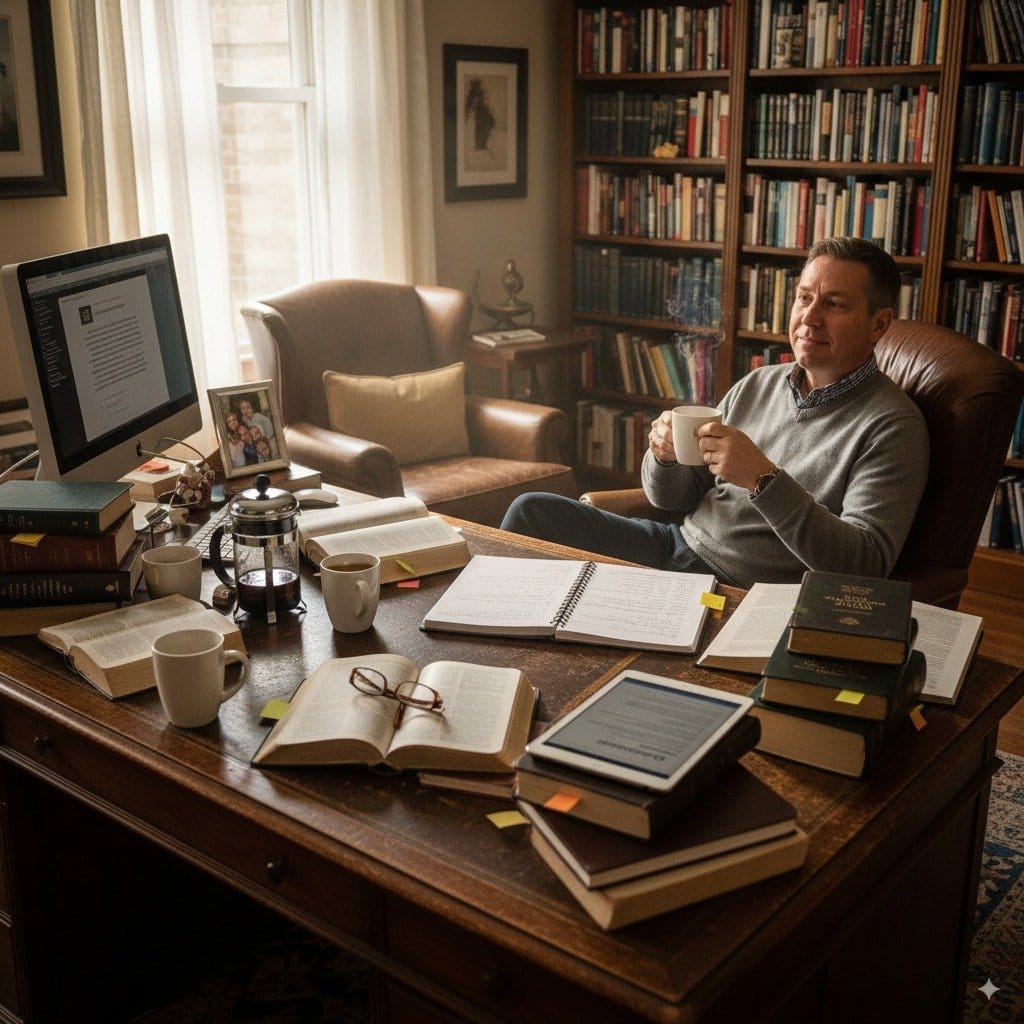Feeling exhausted by the pressure to find your life’s grand purpose? Discover a more grace-filled approach to calling that embraces ordinary faithfulness.
Feeling exhausted by the pressure to discover your life’s grand calling? You’re not alone—and there might be a more grace-filled path.
I’ve been thinking a lot lately about how tired we’ve all become. Not just physically tired, though many of us are that too. I mean tired of the relentless pressure to find our purpose, discover our calling, and live every moment with earth-shaking significance.
Maybe you’ve felt it too—that nagging sense that you should have figured out your “why” by now. That your work should feel like a divine calling rather than just a way to pay the bills. That every decision should align with some grand master plan for your life.
The Purpose-Driven Pressure
This wasn’t always how we thought about life and work. The shift toward seeing everything through the lens of purpose has been relatively recent, gaining momentum in the early 2000s with books like Rick Warren’s The Purpose Driven Life. While Warren’s message offered genuine spiritual insights about worship, fellowship, and service, something interesting happened as these ideas moved beyond church walls.
The concept of living purposefully became a cultural obsession. Suddenly, it wasn’t enough to have a job—you needed a calling. It wasn’t sufficient to volunteer occasionally—your service had to align with your deeper mission. Even hobbies and leisure time were reframed as opportunities for self-optimization and meaningful growth.
I see this struggle in our congregation regularly. People apologize for their “ordinary” jobs, as if working at the grocery store or managing spreadsheets somehow makes them less faithful than those in obviously “meaningful” careers. We’ve internalized the message that unless our work feels like a divine calling, we’re somehow missing the point of our existence.
But here’s what I’ve learned: this relentless search for purpose can become its own form of bondage.
The Problem with Purpose-Driven Everything
When we demand that every aspect of life carry deep significance, we create an impossible standard. Most of us don’t wake up feeling called to our daily tasks. We stand at kitchen sinks washing dishes, sit in traffic during commutes, and navigate the mundane realities of caring for families and communities.
The pressure to find our singular purpose has shifted how we approach even our service to others. Research shows that long-term volunteerism has declined significantly since the post-World War II era, when roughly one-quarter of Americans served as committed volunteers in local organizations. Today, fewer people volunteer, and many who do show up are primarily focused on finding opportunities that match their personal sense of purpose rather than simply meeting community needs.
This shift reflects a deeper cultural transformation. We’ve moved from asking “How can I serve?” to “How does this serve my purpose?” While there’s nothing wrong with finding fulfillment in service, the emphasis on personal purpose can sometimes overshadow the simple call to love our neighbors.
A Different Kind of Calling
As Lutherans, we have a rich tradition of understanding vocation differently. Martin Luther taught that all work—not just church work—could be a form of service to God and neighbor. The key wasn’t finding the “right” job, but approaching whatever work we do with faithfulness and integrity.
This perspective offers incredible freedom. It means the person stocking shelves at the grocery store is serving God just as surely as the pastor preparing Sunday’s sermon. The parent changing diapers at 3 AM is living out their calling with the same dignity as the CEO making strategic decisions.
Your purpose doesn’t have to be something that sounds impressive on social media or fits neatly into an elevator pitch. Sometimes purpose is as simple as showing up consistently, treating people with kindness, and doing your work with care.
Practical Ways to Find Peace with “Ordinary” Purpose
So how do we practically move away from the anxiety of purpose-seeking toward something more sustainable? Here are some approaches I’ve found helpful:
1. Embrace “For No Reason” Activities Allow yourself to engage in activities simply because they bring you joy or help you feel alive. Maybe it’s drawing, gardening, woodworking, or even digging holes in the backyard (yes, this is apparently a thing many kids do, and it’s oddly profound). These activities don’t need to advance your career or align with your mission statement—they just need to be life-giving.
2. Practice Presence Over Purpose Instead of constantly asking “What’s my purpose?” try asking “How can I be present to this moment?” Sometimes the most meaningful thing we can do is simply show up fully to whatever is in front of us—whether that’s a conversation with a colleague, a task at work, or time with family.
3. Find Meaning in the Margins Look for small ways to bring care and creativity to your daily routine. This might mean taking a moment to really listen to a coworker, finding a more efficient way to complete a task, or simply approaching your work with a spirit of service rather than obligation.
4. Celebrate Cumulative Impact Instead of looking for one grand purpose, consider how your small, consistent actions create meaning over time. The teacher who shows up every day, the friend who consistently checks in, the neighbor who keeps their yard tidy—these seemingly small contributions matter deeply.
5. Question the Timeline We’ve been told we should have our purpose figured out by a certain age, but life doesn’t work that way. Many people discover their deepest sense of calling in their 40s, 60s, or even later. Some find meaning through a series of different purposes throughout their lives. There’s no deadline for discovering significance.
When Scripture Speaks to Our Weariness
I often think about Jesus’ invitation in Matthew 11:28: “Come to me, all you who are weary and burdened, and I will give you rest.” What if our burden isn’t just the weight of daily life, but the pressure we’ve placed on ourselves to make everything meaningful?
Jesus didn’t call his disciples to figure out their purpose before following him. He simply said, “Come.” They learned what it meant to serve as they walked with him, responded to needs they encountered, and discovered their gifts through practice rather than planning.
The famous verse from Jeremiah 29:11 about God having plans for us isn’t a promise that we’ll discover our perfect life purpose if we just pray hard enough. It’s a reminder that God’s faithfulness extends into our future, even when we can’t see the path clearly.
The Gift of Not Knowing
Perhaps the most radical thing we can do in our purpose-obsessed culture is to make peace with not knowing. To trust that meaning can emerge from our ordinary days without requiring a grand revelation or perfect career alignment.
This doesn’t mean we become passive or stop caring about our choices. It means we hold our plans lightly, remain open to unexpected opportunities, and trust that faithfulness in small things often leads to significance we never could have planned.
Moving Forward Without All the Answers
As I’ve wrestled with these questions in my own life and watched others do the same, I’ve come to believe that our hunger for purpose often masks a deeper longing for connection—with God, with others, and with ourselves. Sometimes the most purposeful thing we can do is simply be present to the people and opportunities right in front of us.
Your life doesn’t need to be driven by a singular, world-changing mission to matter. Sometimes purpose is found in the accumulation of small kindnesses, consistent presence, and faithful response to whatever arises. Sometimes it’s enough to say that a moment was fulfilling, that something mattered to you, even if you can’t articulate why.
What would it look like to give yourself permission to live without having all the answers? To trust that meaning can emerge from faithfulness rather than requiring a predetermined plan?
What’s your experience with the pressure to find your purpose? Have you found freedom in embracing “ordinary” calling, or are you still wrestling with these questions? I’d love to hear your thoughts and experiences in the comments below








